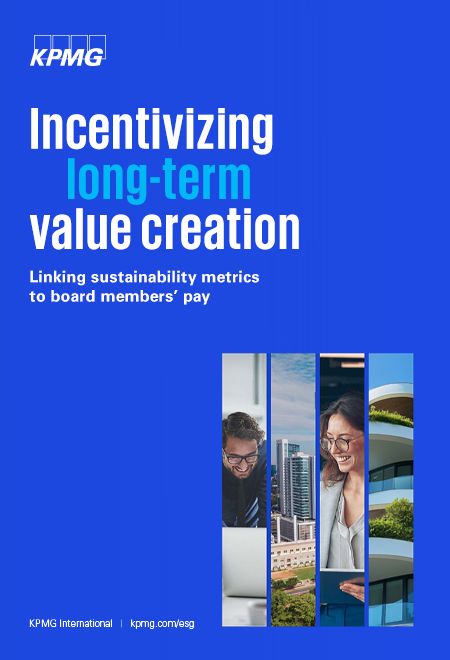A growing number of companies are incorporating significant opportunities and risks from sustainability issues into their corporate strategy. How consistently the strategy is implemented in general and also with regard to sustainability in day-to-day operations is closely linked to a comprehensive and effective governance approach. Remuneration-related incentives play a key role in this approach.
On the one hand, the Management Board sets the strategic course for sustainability and, on the other, should help to ensure that this is adhered to in its day-to-day decisions. Anchoring the key strategic goals in the remuneration of the Management Board and, where applicable, of managers can be an effective incentive to stay on course. This applies to both the key economic objectives and the sustainability objectives of a company.
Integration of sustainability criteria into Management Board remuneration
The system of executive remuneration is an important aspect of corporate governance for a company's shareholders. For the report "Incentivizing long-term value creation", data from 375 listed companies from 15 countries was evaluated and the extent to which sustainability criteria are already integrated into management remuneration was examined. The remarkable result: this is already the case for an impressive 78 percent of these companies.
Further results of the study at a glance
- 88% of companies that link the remuneration of their Executive Board members to sustainability targets align it with ESG issues that are relevant to their business. These vary greatly depending on the country.
- The ESG objectives that are included in executive remuneration are most frequently related to climate change, such as reducing greenhouse gas emissions, and to the company's own workforce: employee engagement, proportion of female executives, accident rate.
- Of the 274 companies that measure the performance of the Executive Board based on sustainability-related targets and provide information on how these are incorporated into variable remuneration, 37% include ESG targets in both short-term and long-term incentives. 23 percent include such targets only in the long-term incentives and the remaining 40 percent use them exclusively in the short-term incentives.
Recommendations for action
How to integrate sustainability indicators into Management Board remuneration:
Methodik
Die Unternehmen, deren Daten für diese Studie ausgewertet wurden, sind die jeweils 25 größten auf der Grundlage der Marktkapitalisierung im Juni 2024 aus jedem der folgenden 15 Länder: Australien, Österreich, Belgien, Kanada, China, Frankreich, Deutschland, Italien, Japan, Luxemburg, die Niederlande, Spanien, Schweden, das Vereinigte Königreich und die Vereinigten Staaten. Die Untersuchung wurde im Juli und August 2024 durchgeführt.
Die analysierten Daten entstammen ausschließlich öffentlich zugänglichen Informationen: den Geschäftsberichten von 2023 und – bei Bedarf – den Vergütungsberichten, den Nachhaltigkeitsberichten und den Webseiten der Unternehmen.






